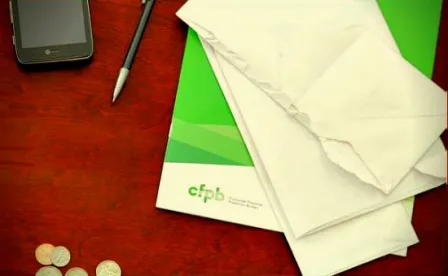On March 11, the Consumer Financial Protection Bureau (CFPB) announced the rescission of its January 24, 2020 policy statement entitled, "Statement of Policy Regarding Prohibition on Abusive Acts or Practices" (Prior Policy).1
By way of background, Congress defined "abusive" acts or practices in connection with the provision of consumer financial products and services in Section 1031 of the Dodd-Frank Act (codified at 12 USC § 5331) as those that:
(1) materially interfere with the ability of a consumer to understand a term or condition of the consumer financial product or service; or
(2) take unreasonable advantage of:
(a) a lack of understanding on the part of the consumer of the material risks or costs of the product or service;
(b) the inability of the consumer to protect the interest of the consumer in selecting or using such product or service; or
(c) the reasonable reliance by the consumer on a covered person to act in the interests of the consumer.
According to the Prior Policy, the CFPB would not challenge conduct as abusive unless it determined that the harm from such conduct outweighed the benefit to consumers and would not cite conduct as abusive unless the facts related to such a finding were different from those challenged by the CFPB in the same action as unfair or deceptive. In addition, the Prior Policy stated that the CFPB would not generally seek civil money penalties and disgorgement where a person was making a good-faith effort to comply with the abusiveness standard.
In announcing the rescission, the CFPB noted the following:
(1) the Prior Policy created market uncertainties because the CFPB was permitted considerable discretion in its application, giving the agency wide latitude to determine what constituted "good faith efforts" to comply.
(2) the Prior Policy did not allow the CFPB to exercise the full scope of the statutory standard adopted by Congress, thereby preventing the CFPB from achieving its statutory obligation to protect consumers from abusive acts and practices. With respect to this particular point, the CFPB noted that "the policy of declining to seek certain types of monetary relief for abusive acts or practices — specifically civil money penalties and disgorgement — is contrary to the [CFPB's] current priority of achieving general deterrence through penalties and other monetary remedies" and of compensating victims for harm caused by violations of law (emphasis added).
This statement makes clear that current CFPB leadership intends to broadly use its ability to impose financial penalties on consumer financial market participants. Such participants would be well-advised to review their offerings in the consumer credit market to ensure such products and services are in accord with all laws enforced by the CFPB.
The CFPB stated in its announcement that its rescission is a general statement of policy and therefore not subject to notice and comment. It will, however, be formally published in the Federal Register.
1 Statement of Policy Regarding Prohibition on Abusive Acts or Practices; Rescission, March 11, 2020. See https://www.consumerfinance.gov/about-us/newsroom/consumer-financial-protection-bureau-rescinds-abusiveness-policy-statement-to-better-protect-consumers/





 />i
/>i

